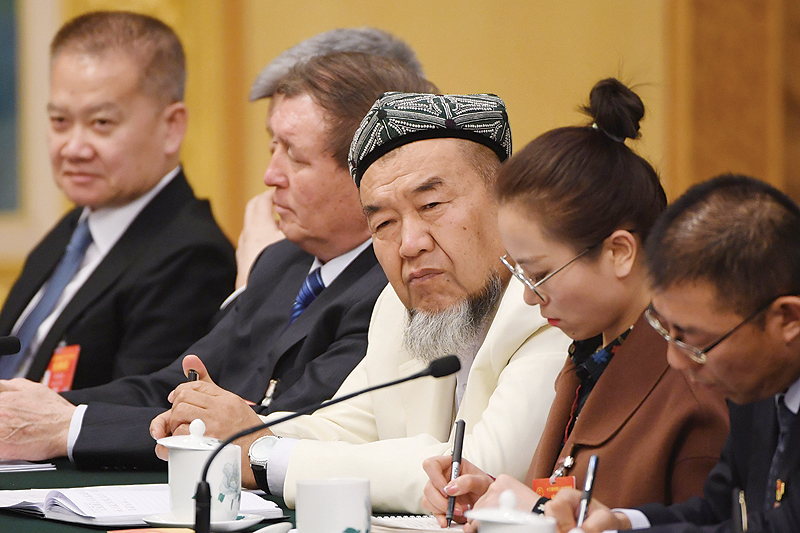BEIJING: China yesterday defended its controversial security crackdown in the fractious far west region of Xinjiang, saying nearly 13,000 "terrorists" have been arrested there since 2014. Beijing has come under international criticism over its policies in the region, where as many as one million Uighurs and other mostly Muslim minorities are being held in internment camps, according to human rights groups.
The State Council, China's cabinet, hit back again with a white paper saying that the government "is relentless in striking hard, in accordance with the law, at any conduct advocating terrorism and extremism". The document states that Xinjiang has long been part of Chinese territory but that "terrorist and extremist forces" have fomented separatist activities by "falsifying" the region's history.

"Since 2014, Xinjiang has destroyed 1,588 violent and terrorist gangs, arrested 12,995 terrorists, seized 2,052 explosive devices, punished 30,645 people for 4,858 illegal religious activities, and confiscated 345,229 copies of illegal religious materials," according to the white paper. "The counter-terrorism work and the de-extremism struggle in Xinjiang have always been carried out in accordance with the rule of law."
A emphasis is also on "preventive counter-terrorism", the document said, including setting up "education centers" to "eliminate terrorist activities before they are launched". The paper was quickly condemned by a Uighur rights group, which called it a "a political excuse to suppress the Uighurs". "The purpose of releasing the so-called white paper is a means of getting local support for its extreme policies and to cover up human rights abuses," Dilxat Raxit, spokesman of the exiled World Uyghur Congress, said in a statement.
Like boarding schools
Xinjiang, which shares a border with several countries including Pakistan and Afghanistan, has long suffered from violent unrest, which China claims is orchestrated by an organized "terrorist" movement seeking the region's independence. China has previously denied the presence of internment camps, but have in recent months shifted to calling them "vocational education centers" akin to boarding schools, with students checking in voluntarily.
The "preventive measures" have brought a "marked change" in the region, with people having "a much stronger sense of fulfillment, happiness and security," the white paper said. Last week, a top Xinjiang official said that the camps would "gradually disappear" when there is no longer a need for "education and training".
A Chinese diplomat also defended the camps at the UN Human Rights Council in Geneva, slamming "ill-intentioned accusations" against the "vocational training centers". But former inmates have said they found themselves incarcerated for transgressions such as wearing long beards and face veils or sharing Islamic holiday greetings on social media. Beijing has also gone on a public relations blitz in recent months, taking journalists and diplomats on tours to visit the region and the centers.
1.5 million detained?
Adrian Zenz, an independent German researcher, estimates there are up to 1.5 million people held in such camps now. "This is based on the fact that we have a range of different internment facilities, many of which have expanding dramatically not only in 2017 but also 2018… and the increasing internment rates among Kazakh and other small Muslim minority groups," he said.
He added that the writing of an "official version" of Xinjiang history - much like what has been done in Tibet - allows China to implement tough measures against what it sees as separatism. "Even slight acts of deviance can so quite easily be interpreted as akin to high treason, and punished most severely," Zenz said.
Many Uighurs and Xinjiang experts say the previous violent episodes stem largely from spontaneous outbursts of anger at Chinese cultural and religious repression, and that Beijing plays up terrorism to justify tight control of the resource-rich region. "It is indisputable that Xinjiang is an inseparable part of Chinese territory," according to the white paper. "Uighurs are formed through long-term migration and ethnic integration, not descendants of Turkic people."- AFP




